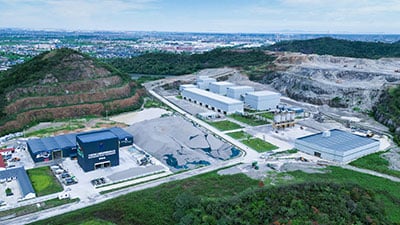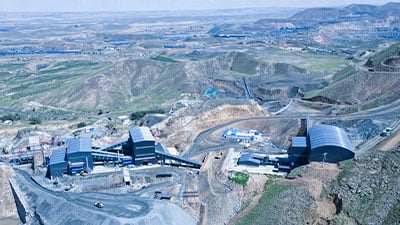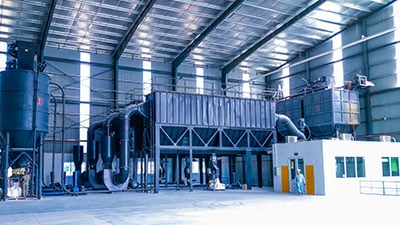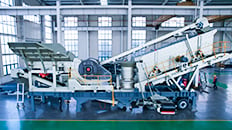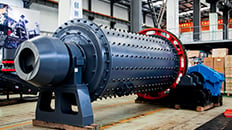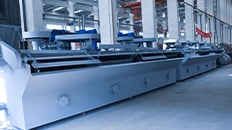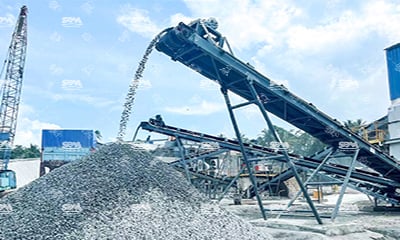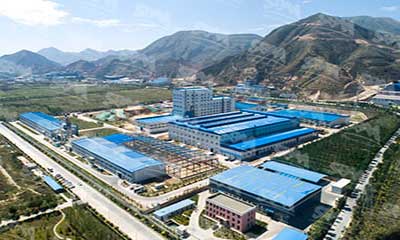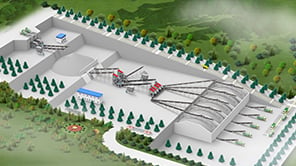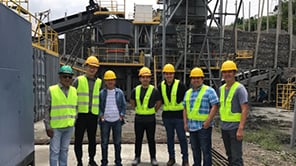Summary:This article provides a comprehensive overview of mobile limestone crushing plant, covering their design, operation, advantages, and applications.
Limestone, a sedimentary rock composed primarily of calcium carbonate, is one of the most widely used materials in various industries, including construction, agriculture, and manufacturing. Its versatility and abundance make it a valuable resource. Mobile limestone crushing plant has emerged as efficient solutions for processing limestone in various settings, particularly in remote locations and smaller projects. This article provides a comprehensive overview of mobile limestone crushing plant, covering their design, operation, advantages, and applications.

1. Understanding Limestone and Its Applications
1.1 What is Limestone?
Limestone is a sedimentary rock primarily composed of calcium carbonate (CaCO₃), along with various other minerals. It forms through the accumulation of organic materials and the precipitation of calcium carbonate from water.
1.2 Applications of Limestone
- Construction: Limestone is used as a primary ingredient in cement and as an aggregate in concrete and asphalt.
- Agriculture: It serves as a soil conditioner and a source of calcium for crops.
- Manufacturing: Limestone is utilized in the production of glass, steel, and lime.
- Environmental: It is employed in water treatment and as a filler in various products.
2. The Need for Mobile Limestone Crushing Plant
2.1 Advantages of Mobile Crusher
Mobile crusher offer several advantages over traditional stationary crusher plants:
- Flexibility: Mobile crusher can be easily transported to various job sites, allowing for on-site processing of materials.
- Reduced Transportation Costs: By eliminating the need to transport mined limestone to a fixed plant, operational costs are significantly reduced.
- Quick Setup: Mobile crushercan be set up and operational within a short period, enabling faster project turnaround times.
- Adaptability: These plants can be adjusted to accommodate different crushing requirements and material types.
2.2 Addressing Specific Challenges
Mobile limestone crushing plants are particularly beneficial in addressing challenges such as:
- Remote Locations: For projects in remote areas where infrastructure is limited, mobile plants provide a practical solution for processing limestone on-site.
- Small-Scale Operations: Smaller operations that may not justify the investment in a large stationary plant can benefit from mobile solutions.
3. Components of a Mobile Limestone Crushing Plant
3.1 Primary Crusher
The primary crusher is the first stage in the crushing process, typically a jaw or impact crusher. Its role is to reduce large limestone rocks into smaller, manageable sizes.
3.2 Secondary Crusher
Following the primary crusher, a secondary crusher (often a cone or impact crusher) further reduces the size of the material, ensuring it meets the required specifications for various applications.
3.3 Screening Equipment
Screening equipment is essential for separating crushed limestone into different sizes. This process ensures that the final product meets the desired specifications for various applications.
3.4 Conveyors
Conveyor systems transport the crushed limestone between different stages of the crushing process. They facilitate efficient movement and minimize material handling costs.
3.5 Control Systems
Modern mobile limestone crushing plants are equipped with advanced control systems that enable operators to monitor and adjust the crushing process in real time, enhancing efficiency and product quality.

4. The Limestone Crushing Process
The limestone crushing process typically involves several stages:
- Feeding: Limestone is fed into the primary crusher via a feeder, which regulates the flow of material.
- Primary Crushing: The primary crusher breaks down large limestone rocks into smaller pieces.
- Secondary Crushing: The material is then sent to the secondary crusher for further size reduction.
- Screening: The crushed limestone is screened to separate it into different sizes based on the project requirements.
- Stockpiling: The final product is stockpiled for transport or further processing.
5. Advantages of Mobile Limestone Crushing Plants
5.1 Enhanced Mobility
The primary advantage of mobile limestone crushing plants is their mobility. They can be transported to various sites, allowing for flexible operation and quick relocation as project needs change.
5.2 Cost Efficiency
Mobile plants significantly reduce transportation and operational costs. By processing materials on-site, companies can save on fuel, labor, and equipment expenses associated with transporting materials to and from fixed plants.
5.3 Environmental Benefits
On-site processing reduces the carbon footprint associated with transporting limestone. Moreover, mobile plants can be equipped with dust suppression systems to minimize environmental impact.
5.4 Increased Productivity
With rapid setup times and the ability to process materials immediately at the source, mobile limestone crushing plants enhance productivity, enabling quicker project completion.
6. Applications of Mobile Limestone Crushing Plant
6.1 Construction Projects
Mobile limestone crushing plants are commonly used in construction for producing aggregates for concrete and asphalt. They provide high-quality crushed limestone that meets industry standards.
6.2 Road Building
In road construction, limestone is used as a base material and for producing asphalt. Mobile crushing plants ensure that high-quality materials are available on-site, facilitating efficient road building.
6.3 Mining Operations
In mining, mobile limestone crushing plants are employed for on-site processing of limestone, reducing the need for transport and enabling efficient resource extraction.
6.4 Environmental Restoration
Mobile crushing plants can be utilized in environmental restoration projects, where crushed limestone is used to neutralize acidic soils or to create habitats.
Mobile limestone crushing plant is essential components in the efficient processing of limestone. Their flexibility, cost-effectiveness, and ability to produce high-quality materials make them invaluable in various industries, including construction, mining, and environmental restoration. As technology continues to advance, these plants will evolve to meet the growing demands for efficiency and sustainability, ensuring that they remain a critical asset in the resource processing landscape. Understanding the intricacies of mobile limestone crushing plants empowers operators to leverage their capabilities effectively, optimizing productivity and resource utilization.

